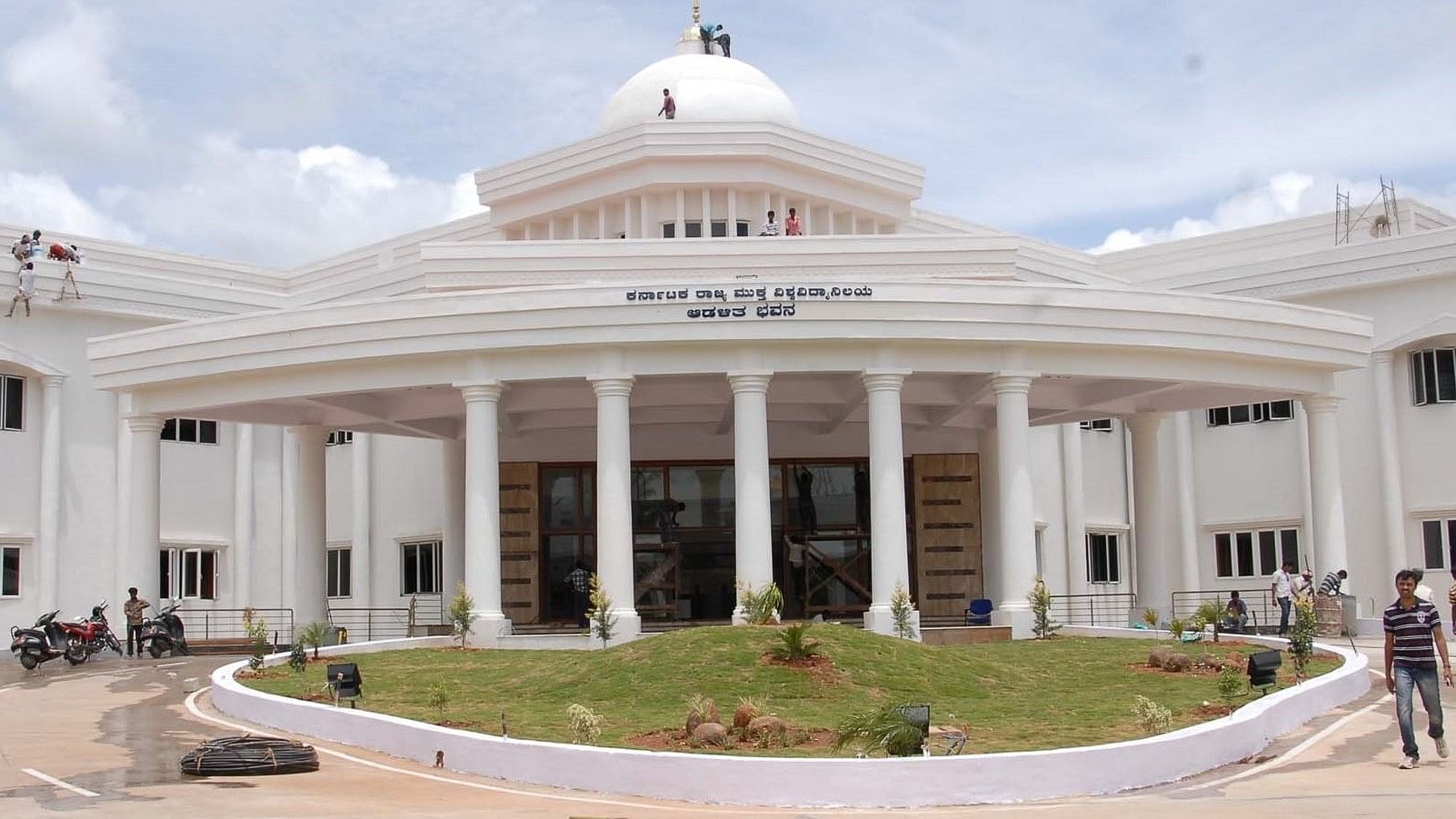
The Administrative block of Karnataka State Open University, in Mysuru.
Credit: DH File Photo
Mysuru: Mysuru-based Karnataka State Open University (KSOU) has achieved a milestone, by creating one lakh Academic Bank of Credits (ABC) identities (ID) of its students.
The KSOU in fulfilling of the norms of the National Education Policy (NEP) 2020, crossed uploading of the credits of its 1,00,023 students on July 23, since the start of the academic year 2021-22.
KSOU, the open and distance learning institution of the Karnataka State government, adopted the National Academic Depository (NAD), for issuing degree certificates, in 2018 itself. It can be noted that NAD is a Central government initiative, for digitally holding certificates from 10th standard, in a central database. Besides eradicating fake and duplicate degree certificates, NAD reduces the hassles of accessing and verifying academic credentials of students, by domestic or foreign universities, by human resource (HR) consultants or employers.
ABC, under the Union Ministry of Education, has been established on the lines of NAD, in the sense that NAD is the backbone of ABC, where the students’ academic data are held and academic awards are stored (ie a storehouse of academic awards).
Credit transfer
Chairman of department of Ancient History and Archeology, KSOU, Shalvapille Iyengar, also ABC and NAD coordinator for KSOU, said, ABC, an initiative of the Union Ministry of Electronics and Information Technology (MeitY) and Union Ministry of Education (MoE), enables the students to register or commence credit transfer.
“The final outcomes of credit redemption and issuance of certificates, as well as the compilation of award records, are administered by academic institutions (AI) or higher education institutions (HEI) via the NAD platform. Thus, being the owner of academic awards, AIs must mandatorily register themselves under ABC, via the NAD, to upload credits of its students, as per University Grants Commission (UGC) guidelines,” he said.
Mobility, flexibility
Iyengar said: “ABC enables students mobility across HEIs. It helps in seamless integration of skills and experiences into a credit-based system. Credits awarded to a student for one programme from an institution may be transferred or redeemed by another institution, upon student’s consent. Thus, credit transfer is the key for successful study mobility”.
“As ABC is an online centralised system, it enables credit accumulation and redemption. It is a credit audit trail management system that facilitates credit accounting. ABC enables student mobility providing academic flexibility. It allows student to choose their own learning path and facilitates recognised learning achievements. The key features of ABC are: It allows multiple entry and multiple exit options. It facilitates anytime anywhere learning. Allows student to study at their own pace and promotes transparency,” Iyengar said.
Ongoing process
“Earlier it was difficult to upload the credits, as KSOU is a huge institution, with thousands of students. Finally, the UGC enabled bulk uploading of credits in 2023. As the admission process itself is digitised in KSOU, the process gained momentum,” he said.
Iyengar said, the journey into NAD and ABC has been a learning process for himself and his engineers M Mallesh and D M Nischitha. “Due to a few problems, creation of ABC credits used to be rejected. Over a period of time, the quantum of rejection has reduced drastically, because we have found the problems and are solving them. The KSOU’s ABC IDs would cross the 1.5 lakh mark in another three months, when the deadline for the current admission cycle (July) ends,” he said.